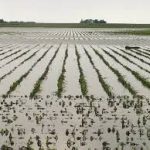The Agro-Climatic Resilience in Semi-Arid Landscapes (ACReSAL) program, supported by the World Bank, in partnership with the Kano State government, has finalized plans to deliver clean drinking water to rural communities as part of their initiatives to address climate change in the state. Dr. Dahir Muhammad Hashim, the Project Coordinator, revealed this during an inspection of solar-powered boreholes at Kyalli Village in Bichi Local Government Area.
Dr. Hashim expressed concern over the situation where young children are compelled to walk about two kilometers to fetch water due to its unavailability in the area. He highlighted that the ACReSAL project, in collaboration with the Kano State government, has invested significant resources in providing water in several affected communities.
Furthermore, Dr. Hashim noted that the ACReSAL project has installed solar-powered boreholes and established tree nurseries in various local government areas as part of their efforts to mitigate climate change. He emphasized that these interventions will alleviate the hardships faced by rural communities, enhance agriculture, and uplift living standards. Additionally, the establishment of tree nurseries will contribute to combating desertification and soil erosion.
We are dedicated to tackling environmental issues impacting our state, including climate change, water scarcity, arid lands, erosion, flooding, and land degradation, all of which significantly affect the livelihoods of our communities, primarily dependent on agriculture. “The ACReSAL project is built upon four overarching components that directly address the needs of impoverished populations whose livelihoods have been severely impacted,” he remarked.
He emphasized the state’s commitment to enhancing and safeguarding the environment of Kano, with a particular focus on addressing challenges related to water scarcity, biodiversity conservation, and the restoration of degraded lands.





